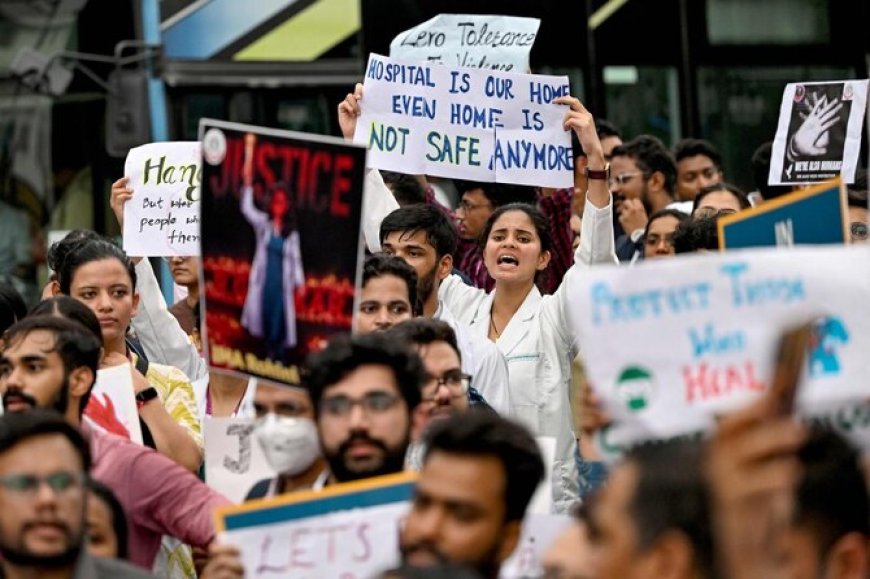In a decisive move aimed at addressing the safety concerns of medical professionals, India’s Supreme Court has mandated the formation of a national task force of doctors. This action comes in response to the recent rape and murder of a 31-year-old trainee doctor in Kolkata, an incident that has ignited widespread outrage and protests across the country.
The task force, comprising leading medical experts and safety professionals, will be tasked with developing comprehensive recommendations to enhance workplace safety for doctors and other healthcare workers. The creation of this panel underscores the urgent need to address the systemic vulnerabilities that have left many in the medical community feeling unsafe and unprotected.
The brutal attack on the young medic, which occurred earlier this month, has drawn national attention to the dangers faced by doctors, particularly those in training who often work late hours in understaffed and poorly secured environments. The crime has sparked a wave of protests by medical professionals and supporters, with demonstrators taking to the streets in cities across India, including a significant march in New Delhi.
Medical professionals, holding posters and chanting slogans, have called for stronger protections and stricter enforcement of safety protocols in hospitals and clinics. The nationwide strike on August 17, 2024, saw thousands of doctors walk off the job, demanding justice for their slain colleague and pressing for immediate government action to ensure their safety.
The Supreme Court’s decision to form a national task force is seen as a critical step toward addressing these demands. The panel will be responsible for evaluating current safety measures in hospitals, identifying gaps, and proposing new strategies to protect healthcare workers from violence and harassment. This may include recommendations for better security infrastructure, mandatory safety training, and protocols for responding to incidents of violence.
Chief Justice D.Y. Chandrachud, who presided over the case, emphasized the importance of ensuring that healthcare professionals can perform their duties without fear of violence or harassment. "The safety of our doctors is paramount," he stated, "and it is the duty of the state to ensure that they are provided with a secure working environment."
The court’s order has been welcomed by medical associations and rights groups, who have long advocated for stronger protections for healthcare workers. However, some have expressed skepticism about the implementation of the task force's recommendations, pointing to previous initiatives that have failed to produce significant change.
The tragic death of the young doctor has also sparked a broader conversation about the treatment of women in the workplace in India, particularly in sectors where they may be more vulnerable to violence. Advocates are calling for a nationwide review of workplace safety standards for women, emphasizing the need for systemic changes to prevent such incidents in the future.
As the task force begins its work, there is hope that its findings will lead to meaningful reforms that not only improve safety for doctors but also set a precedent for protecting all workers in India. The medical community, still reeling from the loss of one of their own, is watching closely, determined that their colleague’s death will not be in vain.
The Supreme Court has asked the task force to submit its recommendations within three months, after which the government will be expected to take swift action to implement the proposed measures.














































